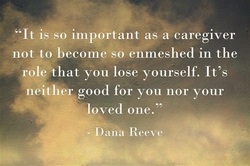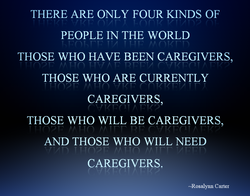|
Joy to the World…Peace on Earth…God rest ye merry, gentlemen…on this silent night!
This time of year, we’re surrounded by well-wishes for peace, joy, happiness, and a bright beginning to the New Year. Many people are able to identify and enjoy these blessings in their lives currently, and others are holding onto hope that they are just around the corner. Yet the reality is that for many, these seem like empty words as they struggle through the chaos of daily life. Chaos comes in many forms. Many of you are experiencing difficult or strained relationships, loneliness, unstable housing, joblessness, poor health, difficulties with children who exhibit combative or self-destructive behaviors, the effects of aging, political unrest, the loss of loved ones, or financial distress. It can be difficult to experience peace, happiness, or hope in the face of overwhelming uncertainty, loss, fear, and frustration. This week my family and I are celebrating the fact that joy and hope are not connected to the circumstances of our daily lives. Instead, they are gifts bestowed on the first Christmas long ago, when God himself stepped into the chaos of our human lives. Each day, I am learning more about trusting His love, faithfulness, and provision of our “daily bread,” or all that we need to face the chaos of our human needs. With this final “Social Incites” of 2014, I am wishing all of you the knowledge and assurance of the love, peace, joy, and hope that are freely gifted to each of us as we celebrate the birthday of the Prince of Peace. May He calm your chaos and give you hope for tomorrow, and for all the tomorrows after that, as we transition from 2014 to 2015!
2 Comments
 Last week I wrote about the reality many of us face at one time or another during our lives; that of being a caregiver for another person, whether it’s a parent, child, spouse, sibling, or other person. Last week I attended a support group for caregivers of individuals with Alzheimer’s, and heard a very interesting illustration I wanted to share with you. The facilitator pointed out that if you had a glass that was filled half-way with a liquid, some might say that the glass is half-empty, and others might say that it is half-full. We know that people tend to be somewhat “hard-wired” as either optimistic or pessimistic, with one more likely to see the positives and another more likely to identify the negatives in life. However, the point of this illustration wasn’t whether the glass was half-empty or half-full. The point was that if you have to hold that glass for an hour, you can probably do that. If you have to hold it for six hours, you might be able to do that. But if you have to hold it for 24 hours, you’ll likely get too frustrated, fatigued, shaky, or downright exhausted to continue holding the glass. The point was this: when you are a full-time caregiver, whether you have a positive attitude or a more pessimistic attitude, you are likely to eventually experience frustration, fatigue, and total exhaustion. Are you caring for a child with autism or some other developmental or physical disability? A parent with Parkinson’s or Alzheimer’s? A spouse with mental illness? I hope you can find help with the burden of around-the-clock caregiving. Respite programs, support groups, coffee with friends, a few minutes to do something you enjoy, or time to focus on something other than the questions/problems/activities of providing care for another person are likely to enable you to take up the glass again later. And I’m finding that if others know of the needs, they are likely to want to help!  Over 20 years ago, I became a mom for the first time. I remember the moment I realized that my life was no longer my own; instead, a tiny baby controlled when I slept, showered, ate, and went on outings (and how pleasant and/or successful those were). I have had three other babies since then, and each one has reminded me of the all-consuming nature of being a full-time caregiver. Although my four children are currently at various stages of independence, and none require the around-the-clock assistance of a newborn, there have been other times throughout my life when the full-time caregiver role has resurfaced. During periods of illness or injury, I have stepped in again with more intensive efforts at meeting my children’s needs. Other people have also provided some care for me, most notably during two periods of bed rest through difficult pregnancies, but also for shorter-term needs. I am certainly thankful for their commitment and care during those times. Last Monday my mother-in-law moved into our home (hopefully temporarily while she looks for housing and hopes to bring her husband here), and I have again been thrust into the seemingly around-the-clock chaos of decisions that need to be made, research that helps lead to wise decisions, and conversations that center around the current status of her situation and possible future options. Again, my life is not my own, as I help someone else sort through the best way to move forward with her life. For me, care-giving has come in a variety of “seasons” or “chapters,” some more intense than others. For others of you, care-giving has come with a relentless long-term intensity, whether you are caring for a son or daughter, a parent, or someone else. Whether the cause is a disability (physical or emotional), illness, old age, or something else, we know that sometimes a person needs a full spectrum of care, and often there are very few other alternatives, or options for respite for caregivers. You have my empathy. It isn’t always easy, although thankfully moments of joy typically are interspersed with the most difficult of moments. With my new caregiver role, I am reminded again that I cannot do this myself. My daily reality is that I have more questions than answers, and more needs than I have time to meet. I need other people to connect with, other resources to provide information, support, and hope, and other outlets for my time and talents. I am incredibly grateful for the people my husband and I have met in the last week, the community resources we’ve been able to access, and the love and support of our family and friends. We look forward to continuing to step through this process with their help, and trust that you, also, will be able to access the supports you need, whether you are currently in a caregiver role, or may find yourself there someday in the future. |
Social IncitesSocial Incites™ are insights which incite (encourage) personal and interpersonal growth. Social Incites™ are written by Laurel Hoekman, Certified Family Life Educator, Certified Employment Training Specialist, Social Coach, Consultant, and Registered Social Service Technician (Michigan). For 15 years, Laurel was the Executive Director of The Gray Center for Social Learning and Understanding, and has also been a CASA volunteer (Court Appointed Special Advocate for children who are abused and neglected). She is passionate about helping individuals and families (including those affected by autism spectrum disorders) identify and achieve their goals, particularly in building and maintaining effective social connections. Archives
April 2023
|
Social Incites, LLC, 1100 Cobblestone Road, Holland, MI 49423, 616.422.5886


 RSS Feed
RSS Feed